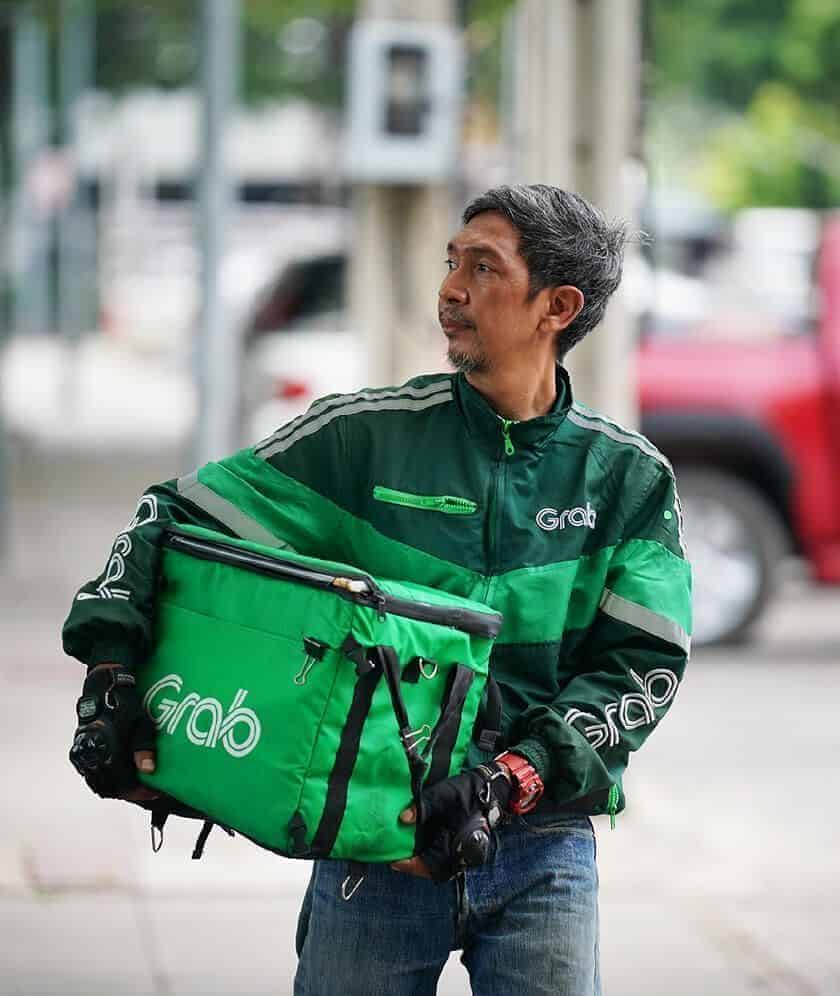Grab Advances ‘Tech For Good’ Agenda at WEF; Contributes to New Industry Guidelines
Grab convened global leaders on the sidelines of the World Economic Forum Annual Meeting in Davos, Switzerland, to discuss the roles and expectations of technology companies in using “technology for good” to drive society forward.
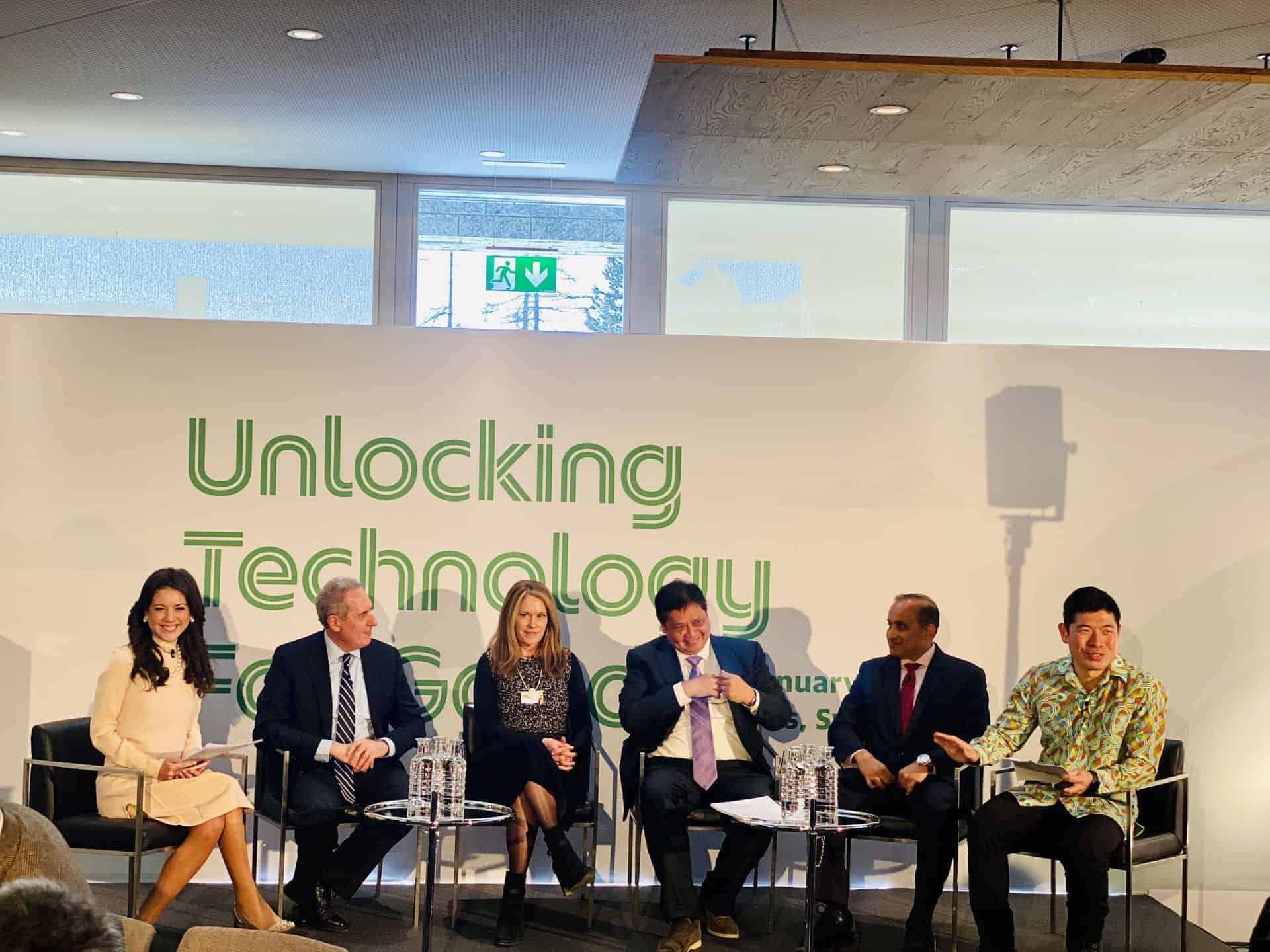
Davos, Switzerland, 21 January, 2020 – Grab, Southeast Asia’s leading super app, today convened global leaders on the sidelines of the World Economic Forum Annual Meeting in Davos, Switzerland, to discuss the roles and expectations of technology companies in using “technology for good” to drive society forward. Grab also contributed to the development of two sets of industry guidelines that outlined best practices around the nascent industry of the platform economy and artificial intelligence (AI) technologies.
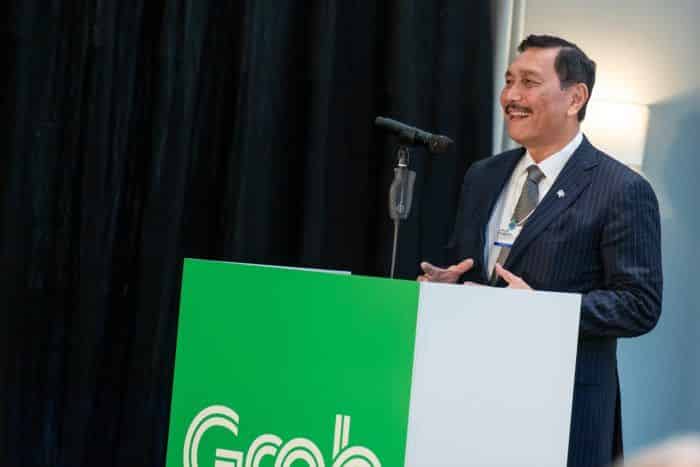
His Excellency Luhut Pandjaitan, Coordinating Minister for Maritime Affairs, Republic of Indonesia, delivering opening remarks calling for governments and businesses to work together to utilise technology for economic and societal advancements.
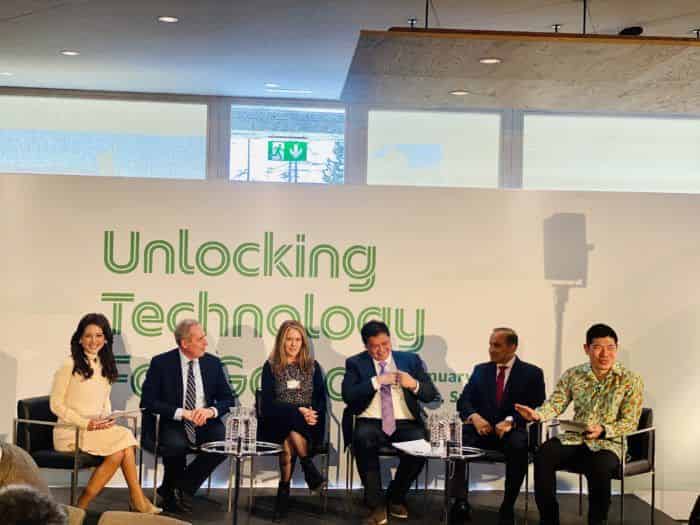
Global leaders sharing their perspectives on unlocking tech for good
(From left to right: Panel moderator, Julia Chatterley, with panelists Michael Froman, Chairman, Center for Inclusive Growth & Vice-Chairman and President, Strategic Growth, Mastercard; Peggy Johnson, Executive Vice President of Business Development, Microsoft; His Excellency Airlangga Hartarto, Coordinating Minister for Economic Affairs, Republic of Indonesia; Sanjay Poonen, Chief Operating Officer, VMWare; Anthony Tan, Group CEO and Co-Founder, Grab)
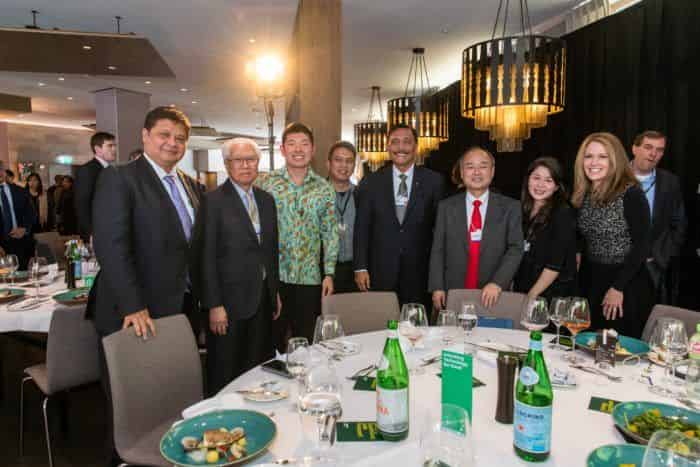
Anthony and team with guests: His Excellency Airlangga Hartarto, Former President of Singapore Dr. Tony Tan, His Excellency Luhut Pandjaitan, SoftBank CEO Masayoshi Son, and Peggy Johnson
The Grab-hosted event, “Unlocking Technology for Good”, was attended by influential figures across the public and private sectors. His Excellency Luhut Pandjaitan, Indonesia’s Coordinating Minister for Maritime and Investment Affairs, opened the event by calling for closer collaboration between governments and the private sector to “utilize technology for the advancement of the economic and social improvements for our citizens”. He advised that “the best way for governments and tech industry leaders like Grab to work together is to use tech for good, and commit to a common goal of building for future generations – developing quality human capital and solving long-term problems like air pollution by developing an Electric Vehicle ecosystem.”
Grab’s Group CEO and Co-founder, Anthony Tan also hosted a panel discussion with His Excellency Airlangga Hartarto, Coordinating Minister for Economic Affairs, Republic of Indonesia; Sanjay Poonen, Chief Operating Officer, VMWare; Michael Froman, Chairman of Mastercard Center for Inclusive Growth and Vice-Chairman and President of Strategic Growth; and Peggy Johnson, Executive Vice President of Business Development, Microsoft.
His Excellency Airlangga Hartarto, Coordinating Minister for Economic Affairs, Republic of Indonesia said, “First, we want to create policies that facilitate the growth of the innovation and tech-based economy, including digital platform businesses like Grab. Technology will play a key role for the implementation of Industry 4.0, and open up access to financial services for all – to make financial inclusion a reality.”
Minister Airlangga added, “Second, we want our regulations to be investment-friendly, while continuing to uphold the principles of good governance, particularly on the issue of data protection.”
Grab contributes to guidelines for the responsible use of new technologies
Through the World Economic Forum platform, Grab signed onto “The Charter of Principles for Good Platform Work”, which furthers its advocacy for responsible digital platform practices that benefit workers. Supported by global platform companies, the Charter aims to provide a guide for all stakeholders, including governments, platform companies and workers themselves, to collaborate on initiatives that enhance the wellbeing of platform workers, based on key principles for good platform work. Good practices by platform companies, for example, Grab’s Break the Silence initiative to expand inclusion by supporting the deaf and others with ability impairments to use its platform for income opportunities, and efforts to bridge ASEAN’s digital skills gap with digital literacy and upskilling training opportunities for its driver-partners, were also highlighted as examples for others in the industry to consider and emulate.
Grab also helped to shape the second edition Model AI Government Framework released by the Info-communications Media Development Authority of Singapore, and contributed a use case example to help organisations implement the Model Framework. As an “AI-everywhere” organisation, Grab uses AI across its platform to solve problems in Southeast Asia, such as stamping out fraudulent transactions and allocating rides and food orders more efficiently. By sharing the collective learnings of Grab’s over 300 strong AI and data science workforce, Grab hopes to inspire creative problem-solving using AI, and encourage responsible deployment of AI.
“Applying new technologies can have a profound impact on the lives and livelihoods of people. Over 20 percent of our driver-partners did not work prior to joining the Grab platform. By helping more people earn incomes, Grab contributed nearly US$6 billion to the Southeast Asia economy in the past year,” said Anthony Tan, Group CEO & Co-founder, Grab.
“Yet the widening digital divide in developing markets and debates over the ethical use of tech reflects that tech companies can do more to step up as responsible industry players. Grab believes in taking a proactive approach to self-regulate in the interest of improving our partners’ livelihoods. We are proactively committing to a set of key principles for good platform work and AI deployment, and hope it can serve as a useful basis for governments and other industry players to begin collaborating on solutions,” added Anthony.
The above initiatives are an extension of the company’s “Grab for Good” programme, where it commits to bringing digital literacy and inclusion to 3 million Southeast Asians by 2025, helping an additional 5 million traditional businesses and small merchants digitise their workflows, and training 20,000 students through tech talent initiatives in partnership with educational institutions, non-profit organisations and leading technology companies.
###
Appendix: Opening Remarks by His Excellency Luhut Pandjaitan, Coordinating Minister for Maritime Affairs, Republic of Indonesia
Good afternoon, fellow Ministers from Southeast Asian countries, CEOs and business leaders from all around the world, and distinguished guests. It is my pleasure to give an opening remarks in front of all of you today.
Today in particular, I’d like to say a few words about the role of the Government in working hand-in-hand with technology companies to utilize technology for the advancement of economic and social improvements for our citizens.
I believe that the tech and digital economy is not the future; it is actually here and now – our present is all about technology. We are surrounded by digitalization and technology almost virtually wherever we go and whatever we do.
Everyone has the right to benefit from the digital economy – to earn more, to choose flexible work, and to learn new skills. In a developing region like Southeast Asia, giving people access to digital platforms can improve the quality of life significantly for the next generation.
My country, Indonesia, is very lucky to have a leader like President Joko Widodo for the second term, because the President is always leading by example. He strives for real progress, favorable policies for industry players, and he is supportive for tech industries in general.
The President is focusing on developing quality human capital, and this is where I believe tech companies will have a significant role in it. Similar to Indonesia, I believe many Governments around the world are looking at industry leaders like you to work hand-in-hand with us in developing good quality talent to help build nations. We hope that tech companies can help Governments to also build the right ecosystem for Research and Development (R&D) for long-lasting impact to nations.
It is also important that tech companies are committed to be here for the long-term, building for future generations, not just making money but also help Governments find solutions to our problems.
An example from Indonesia is we have bad air pollution from cars and motorcycles and the fact that we have not been optimizing our natural resources for high-value imports. This is the backdrop why our President decided to focus on initiatives like developing Electric Vehicles (EVs) ecosystem in the country. We have the largest nickel reserve in the world and if we do this right, we can be the biggest global supplier of lithium battery for EVs all around the world.
I’d like to also recognize Grab who has partnered with us in launching EV pilot in Jakarta and we hope to scale up the EV adoption in an incremental pace. Indonesia wants to leapfrog as a global player for EV ecosystem and partnering with the right tech company is one of the ways we can do that.
Finally, I’d like to emphasize that the Government of Indonesia is open to working with the private sector, and I believe that many other countries are taking a similar approach as us. It is imperative for the private sector and tech industry leaders like you to show the same commitment to community and nation-building. That is the best way for Governments and the private sector to work together, using tech for good!




